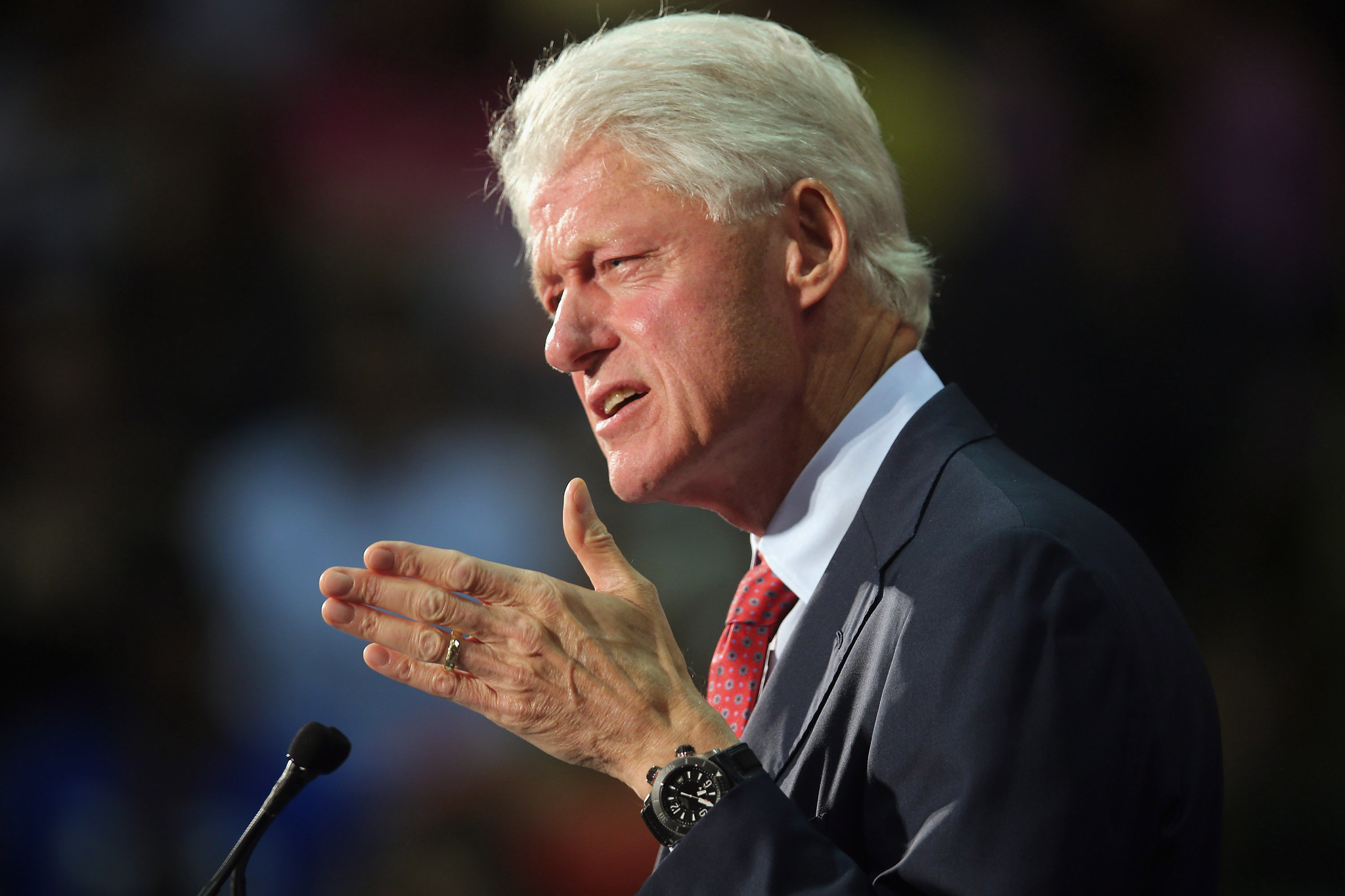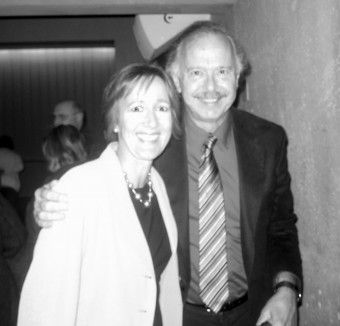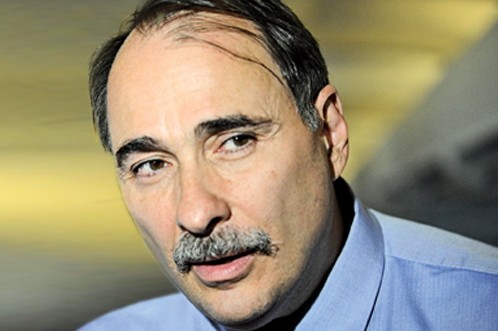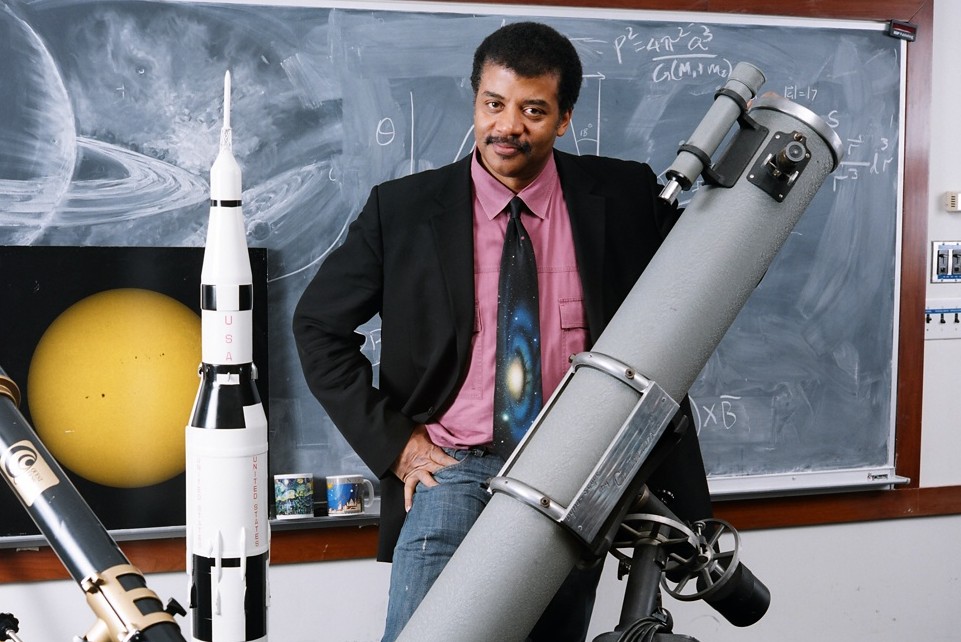
Bill Clinton’s Hero: Former Climate Skeptic Richard Muller
By Alison van Diggelen, host of Fresh Dialogues
Muller: Science is that small realm of knowledge on which we can expect and obtain agreement. I felt that many of the skeptics had raised legitimate issues. They are deserving of respect, not the kind of ridicule they have been subjected to. We have addressed the scientific issues in the most direct and objective way, and just as I have adjusted my conclusions, I expect that many of them will too.
 van Diggelen: Regarding the human cause of global warming, you say that your conclusions are stronger than that of the Intergovernmental Panel. You concluded “essentially all of this increase in temperature results from the human emission of greenhouse gases.” The panel said “most of the warming.” Why is this significant?
van Diggelen: Regarding the human cause of global warming, you say that your conclusions are stronger than that of the Intergovernmental Panel. You concluded “essentially all of this increase in temperature results from the human emission of greenhouse gases.” The panel said “most of the warming.” Why is this significant?
Muller: The IPCC said “most of the warming” (meaning 51% or more) for the past 50 years. They could not rule out an important role from solar variability. We say essentially all of the warming of the past 250 years. Our analysis allows us to make a better prediction for the future since it does not have confusion from a solar component.
van Diggelen: What’s your message to climate change skeptics?
Muller: Most of your skepticism is still valid. When something extraordinary happens in weather, such as the accidental occurrence of Hurricane Sandy hitting New Jersey and New York City just at the peak of tides — many people attribute the event to “Climate Change.” That’s not a scientific conclusion, and it is almost certainly wrong. Hurricanes are not increasing due to human causes (actually, they have been decreasing over the past 250 years). Tornadoes are not increasing due to human causes. (They too have been decreasing.) So please continue to be skeptical about most of the exaggerations you will continue to hear! Proper skepticism is at the heart of science, and attempts to suppress such skepticism represent the true anti-science movement.
However, we have closely examined the evidence for temperature rise, and there are several conclusions that are now strongly based on science. The temperature of the Earth has been rising in a way that closely matches the rise in carbon dioxide. The history of solar activity does not match the data at all. Based on this, the human cause for this warming is strongly indicated. Read our Berkeley Earth papers and see if your objections are answered. I believe that the key objections have all been addressed. Based on this, you should consider changing your skepticism on global warming, even if you are properly skeptical about all the claims that are lumped together under the rubric of “climate change.”
van Diggelen: You’ve said that the difficult part is agreeing what can and should be done about climate change…any suggestions?
We need to recognize that the greatest contributors to climate change in the coming decades will be China, India, and the developing world. Thus any solution must be focused on realistic actions that they can take. The Clinton Foundation is doing wonderful work on energy efficiency and energy conservation, and working closely on this with the developing world. The only other action that we can take that could be equally important over the next 20 to 30 years is to help them switch from coal to natural gas. (For the same energy delivered, cleanly-produced gas creates only half to one third of the greenhouse emissions.) This was the subject of my WSJ Op Ed with Mitch Daniels. It is also discussed in detail in my new book “Energy for Future Presidents.”
van Diggelen: What are YOU doing to reduce your carbon footprint?
Muller: I am trying to get people to stop asking that question! It is very misleading. This is a problem in which we need to think global and act global (NOT local!) Reducing our own footprint, if it is done in a way that will not influence China and the developing world, is not a worthwhile action. It may make us feel good, and then in the future after the world has warmed (because our actions were not something that China could afford to copy) we’ll be saying “at least it wasn’t MY fault.” Wrong! We need to be acting to help China and the emerging economies. Focusing on ourselves at home is a way of avoiding coming to terms with the problem.
van Diggelen: What should others be doing? If you could have President Obama’s ear for 5 minutes, what would you say?
Muller: Double (or more) our efforts to help China become more energy efficient. And equally important: develop “clean fracking” standards. Work with China to expedite and accelerate their switch from coal to natural gas. Devise market-based approaches that will guarantee that the developing world will apply clean methods to their natural gas production. Show leadership by approving a US move to nuclear power; reverse your unfortunate canceling of the Yucca Mountain waste storage facility. In the US emphasize technologies that can work in China (e.g. natural gas), not those that are too expensive (e.g. autos with costly lithium-ion batteries).
van Diggelen: Just how urgently is action needed on climate change?
Muller: We need to act, but no need to panic. I see no tipping points that are scientifically valid. Of course, we don’t understand the atmosphere and biosphere well enough to be sure. Rather than speed of action, the key parameter is finding solutions that are profitable — because those are the ones most likely to be applicable to the poorer nations.
van Diggelen: How do you explain Hurricane Sandy? Some scientists say it was exacerbated by climate change? Warmer oceans, more evaporation? Higher sea level swells?
Muller: None of the above. Hurricane Sandy was a freak storm that happened because a relatively small hurricane (it wasn’t even a category 1 storm when it hit New York City) veered towards the coast during a very high tide. None of the causes of the damage can be attributed in a scientific manner to climate change.
The word “scientific” in that last sentence is very important. Many of the critics of the skeptics claimed that the skeptics were not being scientific. Yet that is also true of the alarmists. There is an unfortunate tendency, when the issue is very important (as in climate change) to abandon science and work from gut feelings. No, that is a mistake; when the issue is important, then it is most urgent that we stick to our science! We must be objective!
Hurricane Sandy cannot be attributed to global warming. The rise over the oceans, in the last 50 years, has been about 0.5 degree C. That’s tiny! In those 50 years, sea level rose by 4 inches. So the high tide, if not for global warming, would not have been 14 feet but “only” 13 feet 8 inches. There was a similarly severe storm in 1938 (my parents lived through it out on Long Island). We should stop attributing all freak storms to climate change. This is an important issue, so let’s emphasize the science.
Unfortunately, there will always be scientists with some credentials that will exaggerate, maybe even convincing themselves. I recall back in the 1950s, when I was a kid in New York City, that the freak storms and changes in climate were attributed by some eminent scientists to atmospheric nuclear testing. (Maybe the freak storms and changes in climate should now be attributed to the nuclear test ban.) It is not science to list the bad things that have happened lately and claim that they “may be linked” to climate change. Even scientists, such as those who were passionately afraid of thermonuclear war, tend to see connections in things that aren’t there.
Climate change is real, and we need to do something to stop it. But it is not strong enough (0.6 C in the last 50 years) to be noticeable by individuals. It takes scientists analyzing large amounts of data to see it. (A statistical analysis of hurricanes shows that they have actually been decreasing in number that hit the US coast over the past 150 years.) That gives us a good idea about what has been happening, and allows us to make predictions for the future. Those predictions are worrisome enough that we should act — always remembering to keep our focus on China. But let us not be deluding into thinking that every extreme event is evidence supporting our worry.
van Diggelen: How did it feel to be called a hero by Bill Clinton?
Muller: I didn’t know whether to correct him or just feel awed. President Clinton is the true hero for his fantastic foundation, and for addressing many of the most serious problems in the world, from AIDS to clean water to ending poverty.
With thanks to Celebrity Forum Founder, Dr. Richard Henning for the introduction to Dr. Muller.






